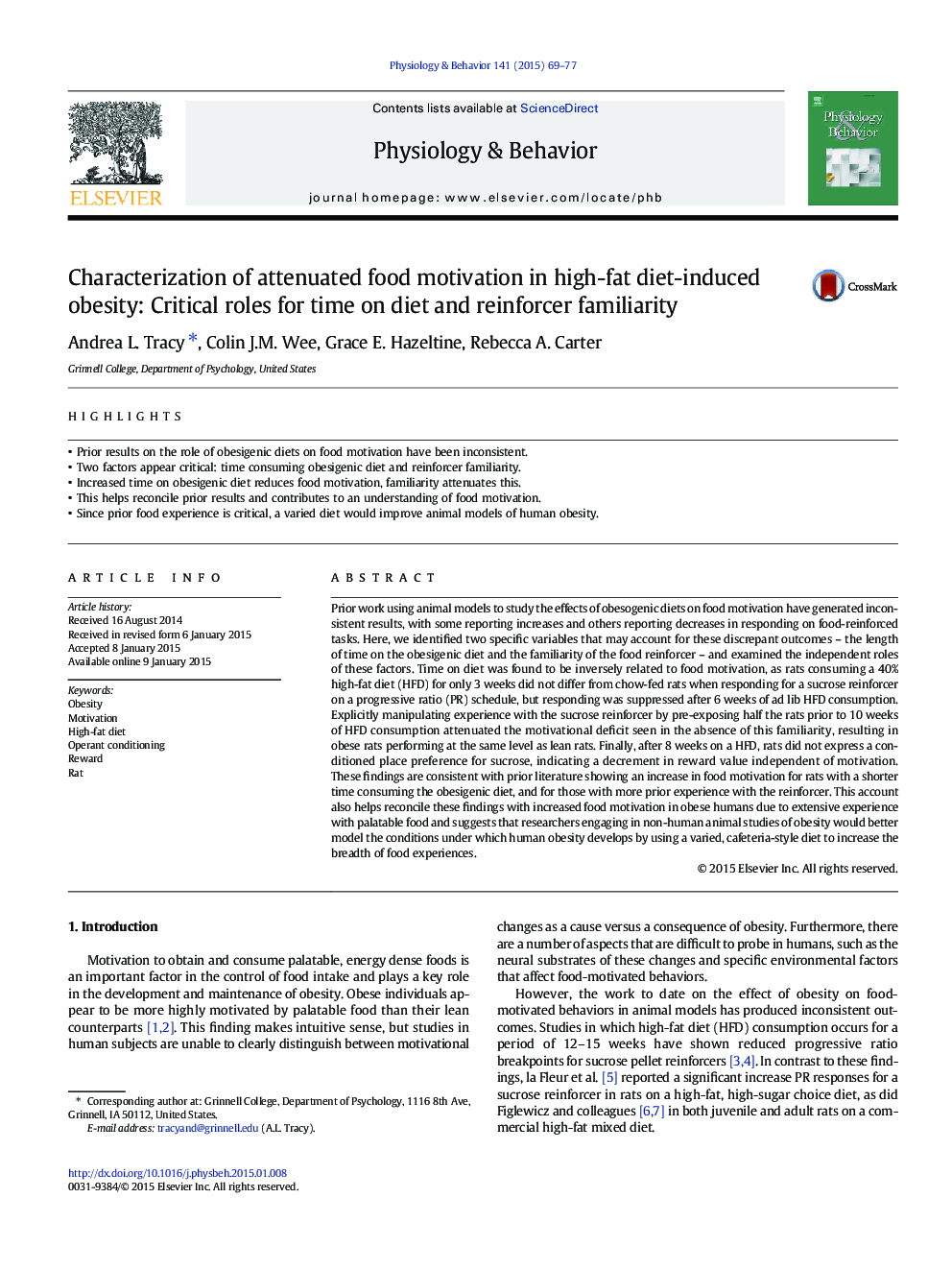| کد مقاله | کد نشریه | سال انتشار | مقاله انگلیسی | نسخه تمام متن |
|---|---|---|---|---|
| 5923753 | 1571176 | 2015 | 9 صفحه PDF | دانلود رایگان |
- Prior results on the role of obesigenic diets on food motivation have been inconsistent.
- Two factors appear critical: time consuming obesigenic diet and reinforcer familiarity.
- Increased time on obesigenic diet reduces food motivation, familiarity attenuates this.
- This helps reconcile prior results and contributes to an understanding of food motivation.
- Since prior food experience is critical, a varied diet would improve animal models of human obesity.
Prior work using animal models to study the effects of obesogenic diets on food motivation have generated inconsistent results, with some reporting increases and others reporting decreases in responding on food-reinforced tasks. Here, we identified two specific variables that may account for these discrepant outcomes - the length of time on the obesigenic diet and the familiarity of the food reinforcer - and examined the independent roles of these factors. Time on diet was found to be inversely related to food motivation, as rats consuming a 40% high-fat diet (HFD) for only 3Â weeks did not differ from chow-fed rats when responding for a sucrose reinforcer on a progressive ratio (PR) schedule, but responding was suppressed after 6Â weeks of ad lib HFD consumption. Explicitly manipulating experience with the sucrose reinforcer by pre-exposing half the rats prior to 10Â weeks of HFD consumption attenuated the motivational deficit seen in the absence of this familiarity, resulting in obese rats performing at the same level as lean rats. Finally, after 8Â weeks on a HFD, rats did not express a conditioned place preference for sucrose, indicating a decrement in reward value independent of motivation. These findings are consistent with prior literature showing an increase in food motivation for rats with a shorter time consuming the obesigenic diet, and for those with more prior experience with the reinforcer. This account also helps reconcile these findings with increased food motivation in obese humans due to extensive experience with palatable food and suggests that researchers engaging in non-human animal studies of obesity would better model the conditions under which human obesity develops by using a varied, cafeteria-style diet to increase the breadth of food experiences.
Journal: Physiology & Behavior - Volume 141, 15 March 2015, Pages 69-77
